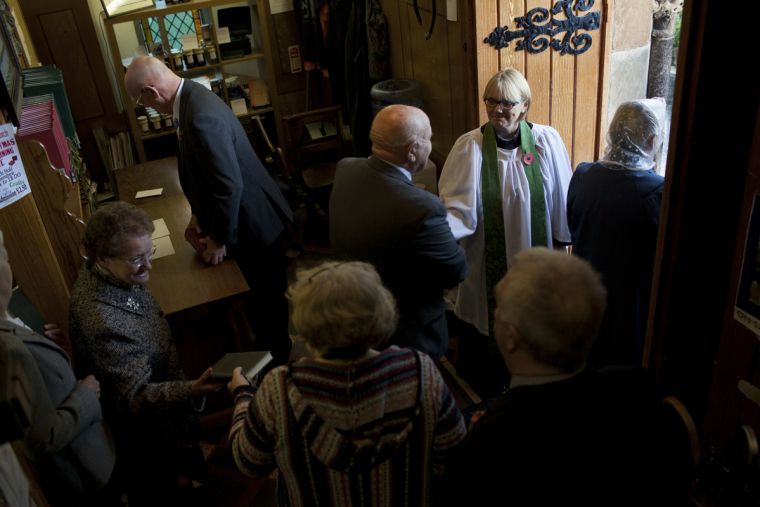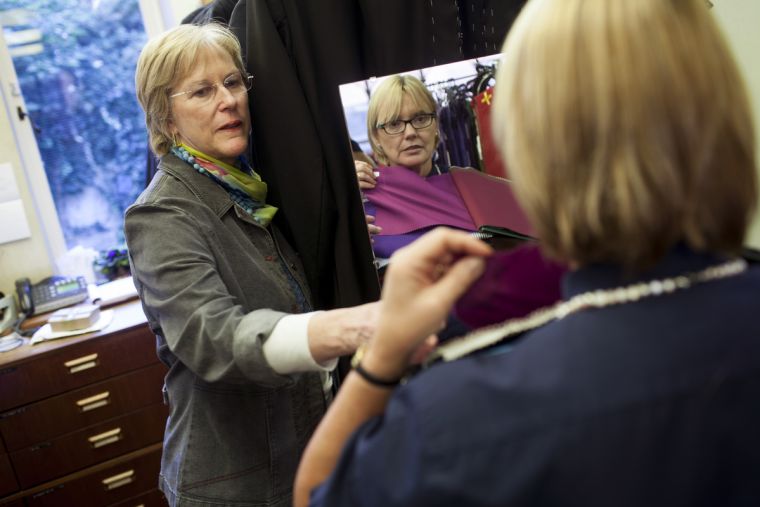Pat Storey on life as the first female bishop

On Saturday 30 November, history was made as the first female bishop in the UK and Ireland was consecrated.
Bishop Pat Storey officially took up her role as new Bishop of Meath and Kildare at a ceremony that took place at Christ Church Cathedral in Dublin.
After studying French and English at Trinity College, Dublin, she trained at the Church of Ireland Theological College - now Institute - and was ordained deacon in 1997 and priest in 1998. Before consecration as bishop, she was rector of St Augustine's Parish Church, Londonderry; a position she has held since 2004.
Her appointment as bishop has been welcomed by many, including the Most Reverend Dr Michael Jackson, Archbishop of Dublin, who said her election would bring "delight" to many Anglicans.
"Pat herself brings to this work of God a warm personality and a breadth of spiritual gifts to share generously in the church and in the community," he said.
Bishop Pat spoke with Christian Today about her historic appointment, the future of women in the Anglican Church, and what part of her new role is most important to her.
CT: Your appointment has huge historic significance, but does it feel that way to you?
BP: In terms of position or post, it's a big thing for there to be a first female bishop. But my personal experience has actually not been bad at all, I've never felt discriminated against, so whilst I recognise that it is a glass ceiling being broken, I haven't personally had much of an axe to grind because I think I've been very fortunate. If you asked a different woman, she might have a different experience, but I think I've been fortunate. So I do recognise that it is historic, but for me personally, really genuinely, the big thing was becoming a Bishop. I was worried enough about that without thinking about it being historic!
CT: You've been labelled as a 'trailblazer' - do or did you feel any pressure or do you prefer not to think about it?
BP: I don't go there in my head to be honest, or I think you're just setting yourself up for disappointment really. You shouldn't believe your own publicity. The first time it struck me really personally that it was historic was at the end of the consecration; there was such a crowd outside and a big round of applause and suddenly it hit me: 'Oh my goodness, this is historic!' It's not that I hadn't known that, but it didn't hit me until then.

CT: What are your hopes for the future of women bishops in the Church?
BP: Really honestly, I just hope that the right people are put in positions as Bishop. I was assured when I was phoned with news of my election, which was shocking news for me, that it wasn't tokenism and they felt that I was the right person; I wasn't elected because I was female. I suppose I would hope for the future that that would continue; the right people would be elected to the post and I hope and pray and know, actually, that many of them will be women. Because of course they have great skills and abilities and they are the right people and perhaps they've been overlooked. I don't think that's going to be so much the case now, I think that it's easier once you've got the first one in!
CT: What would you say to those who are considering ordination, whether male or female?
BP: I think it's a fantastic vocation, but it has to be a vocation. If you're not sure you want to do it then don't do it, because it's your calling that sees you through the difficult times. When you're in God's will, no matter how hard it is, God will take you through it because you're in the right place. It's a very silly job to take if you don't feel called to it.
CT: And finally, what are you looking forward to in your new role?
BP: I'm looking forward to learning what it will entail! There aren't many training courses for how to be a bishop, you know. I know how to be a rector; I've been one for a long time. But I don't know all that a bishop does; it's been a big learning curve. I'm looking forward to working that through, talking to others and really prioritising for myself what a bishop should do. Personally, I hope that my first priority will be pastoring the clergy and looking after clergy families, because I think that's a real need. Bishops tend to get so caught up in other things that it's the one thing they neglect.
It's like prayer and Bible study; it's the most important thing to do and yet sometimes it gets squeezed into five minutes at the end of the day. I feel the same thing can happen to bishops; you neglect the very thing that you were consecrated for. I want to protect that.











